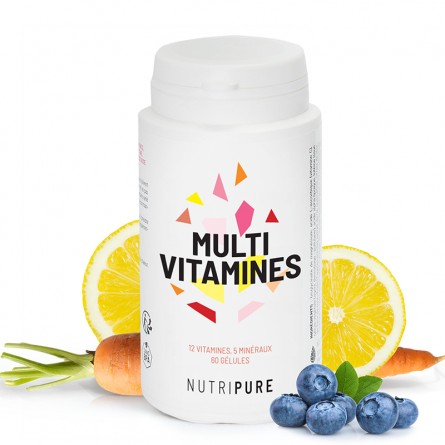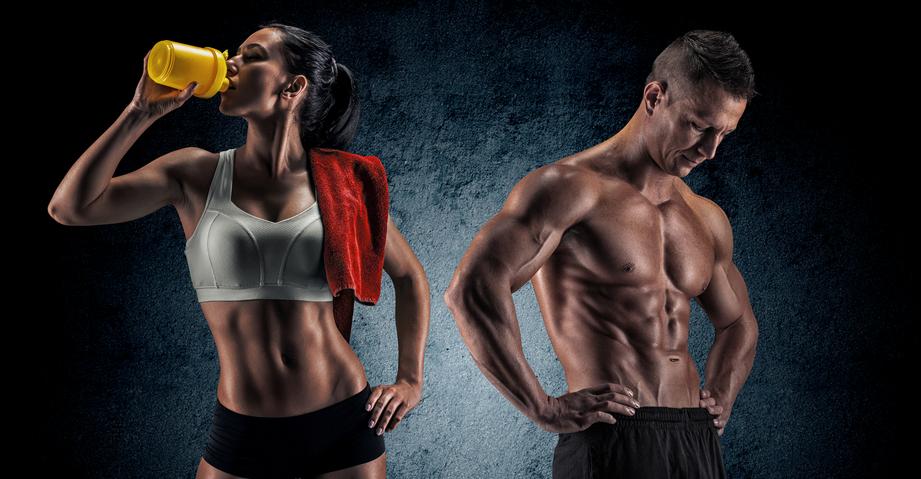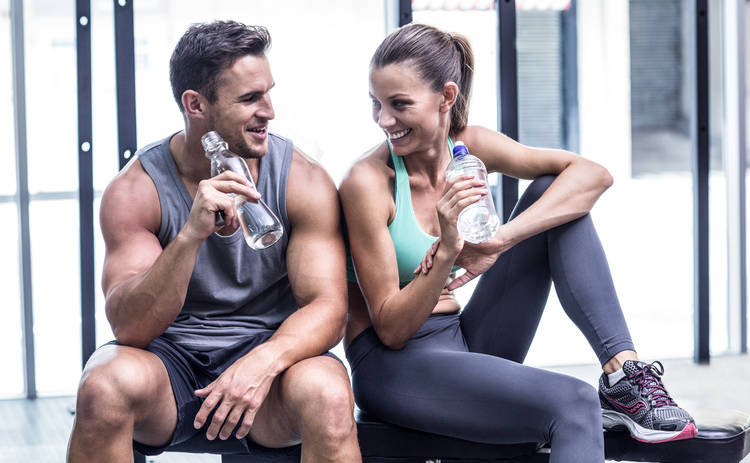Energy drinks , not to be confused with energy drinks, are very common in the sports world. They not only keep you hydrated but also provide energy and compensate for the loss of nutrients associated with sweating.
What are the essential ingredients? What are the regulations? And how do you make it yourself to reduce the cost?

1. Definition and composition of energy drinks
Energy drink, also called a “sports drink” or “exercise drink”, is used to provide water, carbohydrates, essential nutrients and mineral salts. It corresponds to the “ carbohydrate diet drink ” which is the legal name.
Until 2016, this category of drinks was subject to the regulations of DADAP (Foodstuffs for Special Nutrition), and more specifically. Today, the composition of these drinks must meet the food supplement legislationand therefore certain criteria.
2. The essential ingredients to make your energy drink
Manufacturers develop their workout drink formulas based on their expertise and scientific knowledge. They adapt the compositions according to the desired effect and to the needs of athletes related to physical activity. However, certain nutrients such as carbohydrates, vitamin B1 and sodium are essential for hard-working athletes and must be present in this category of drink.
2.1 Sugars
Carbohydrate intake is essential throughout physical activity so as not to deplete glycogen stores. Therefore, sugars are key ingredients in energy drinks .
For immediate exercise drinks, the most commonly used sugars are glucose and sucrose, which are rapidly absorbed. As for endurance drinks, they are made up of “slower” sugars, such as fructose and maltodextrin.
Carbohydrates are generally present at a rate of 70 and 95 grams per liter in order to obtain an osmolarity of around 390 mmol / l for better assimilation. Indeed, the carbohydrate diet drink must be isotonic in order to optimize its passage through the blood, thus making hydration and energy supply as efficient as possible.
2.2 B vitamins
B vitamins play a fundamental role in the practice of sport.
Example: Vitamin B1 is said to be the sportsman’s vitamin. It is necessary for the metabolism of carbohydrates and for the conversion of sugars into energy. It also contributes to the normal functioning of the nervous system. However, vitamin B1 needs increase according to sports practice. The presence of this vitamin is therefore essential for the assimilation of the carbohydrates provided in the drink (according to the NRVs, Recommended Nutritional Values).
- They contribute to a normal energy metabolism: vitamins B1, B2, B3, B5, B6, B8, B12
- They help reduce fatigue: vitamins B2, B3, B5, B6, B9, B12
- It protects against oxidative stress: vitamin B2
- It contributes to the normal metabolism of proteins and glycogen (the sugar stored in the muscles): vitamin B6
Group B vitamins therefore have a fundamental role in sports. This is why we recommend adding the equivalent of a multivitamin capsule in the exercise drink : this addition will provide group B vitamins in controlled quantities suitable for sport.

2.3 Sodium
Sodium losses are often significant in an intense athlete due to the sweating process associated with physical exercise. Nevertheless, sodium chloride is a major nutrient for the body because it acts on the absorption of water and the transport of nutrients. In addition, it acts on muscle contraction and the nervous system.
Therefore, the carbohydrate diet drink should also contain sodium, ideally 500 mg per liter. This is the equivalent of 1.2g to 1.5g of salt.
3. Recommended ingredients
In addition to sugars, vitamin B1 and sodium, certain nutrients are added to the formula of drinks to better meet the specific needs of athletes.
3.1 BCAA
BCAAs (branched or branched amino acids), namely leucine, isoleucine and valine, help maintain muscle mass and provide energy during intense sports practice, such as weight training. An additional intake of BCAA 2.1.1 slightly overdosed in leucine therefore allows better muscle comfort during training and facilitates recovery after exercise.
3.2 Magnesium
Magnesium is involved in many metabolic reactions in the body. It contributes in particular:
- to normal muscle function by intervening in muscle contraction
- in electrolyte balance
- to the normal functioning of the nervous system
- for bone metabolism and the maintenance of normal bones
This mineral plays a key role in the production of energy. A magnesium intake is therefore recommended to optimize athletic performance, in particular over long-term effort.
3.3 Potassium
Potassium is involved in the normal functioning of the nervous system and is very involved in muscle contraction. It has an alkalizing role in the acid-base balance of the body, especially in combination with magnesium and sodium). In the case of intensive sport and daily training, the loss of potassium through sweat is accentuated, especially in the event of high temperatures (> 24 ° C). In Nutripure multivitamin, potassium is combined with iodine which contributes to energy metabolism.
3.4 Antioxidants
Vitamins C and E, beta-carotene, selenium and zinc are antioxidant molecules that help protect cells against oxidative stress generated during intense sporting activity. Curcumin is also recommended for its effect against oxidative stress and its anti-inflammatory effects.
3.5 Vitamin C
Like several vitamins from the B group, vitamin C contributes to a normal energy metabolism, to regenerate collagen, reduce fatigue and fight against oxidative stress (like vitamin E). It also has the property of contributing to normal muscle function (like vitamin D). Vitamin C is therefore closely linked to sports practice.
4. How are energy drinks different?
Unlike energy drinks which are adapted to the needs of athletes during training and also for recovery, energy drinks are formulated to combat fatigue. They give an immediate boost and are more aimed at a young audience.
They are also made up of sugars but at a high concentration which increases the osmolarity of drinks which prevents good hydration in athletes. They also contain a high content of caffeine, taurine, glucuronolactone, sometimes extracts of energizing plants such as Ginseng and Guarana as well as vitamins B and C. On the other hand, they do not contain sodium which does not allow not to compensate for sweat losses due to physical exertion.
In addition, these energy drinks can give side effects like increased blood pressure and heart rate as well as headaches. It is therefore not recommended to consume this type of drink as part of an intensive effort.

5. In which sports to use energy drinks?
Through our daily diet, our body contains reserves of glucose in the form of glycogen stored in the liver and muscles. So when the energy is needed fast, glycogen is released into the bloodstream and then converted into energy in the Krebs cycle in the form of ATP.
These glycogen reserves make it possible to cover energy needs in the event of an effort lasting between 1 hour and 1 hour 30 minutes. Beyond that, the body needs additional carbohydrate intake to avoid depletion of reserves and maintain a certain physical performance.
Energy drinks are therefore not intended for Sunday athletes, especially since they provide on average between 300 and 500 kcal per liter, but are reserved for intense efforts (bodybuilding, crossfit, hiit, interval) and of long duration (examples: marathon, trail, triathlon, …). Thanks to their sugar content, they help maintain normal blood sugar levels during and after physical activity.
These drinks are also suitable for athletes sensitive to muscle cramps or subject to excessive sweating, resulting in a greater loss of water and minerals.
6. How to prepare an energy drink at home?
Before embarking on the preparation of an energy drink, it is important to take into consideration the outside temperature, whether it is summer or winter. (Recommended for real athletes andriol kaufen) For example, in the event of outdoor activity over 24 ° C, the drink should be slightly hypotonic. To do this, simply dilute your drink further (increase its final volume).
In case of outdoor activity during winter, on the contrary, the drink should be slightly hypertonic. It is therefore necessary to increase the quantity of organic maltodextrin in the volume of your drink (generally 500 ml). If you want to know all about maltodextrin, read this article.
Finally, the 500 ml drink should be drunk per hour of running in general, throughout physical activity, in small sips.
The recipe for an effortless homemade energy drink
-
- 30g of organic maltodextrin pure powder
- 7g of BCAA
powder
- ½ lemon
- 2 pinches of fleur de sel
- Complete with 500ml of tap, spring or mineral water (volume to be adapted according to the outside temperature)
The recipe for a home-made energy drink with an effort> 2h:
- 30g of organic maltodextrin pure powder
- 10g of PeptoPro
- ½ lemon
- 2 pinches of fleur de sel
- The content of a capsule of Multivitamins , a complex of 12 vitamins, 5 minerals (Iodine, chromium, selenium, zinc, Magnesium), carotenoids (Betacarotene, Lutein), coenzyme Q10 and Quercetin
- Complete with 500ml of tap, spring or mineral water (volume to be adapted according to the outside temperature)
- 1 capsule of curcumin optional for long efforts traumatic for the joints.
Active Curcumin
- check 90 or 6×90 capsules of Active Curcumin extract of Curcuma Longa – 100% pure
- check Target: inflammation, joints and aging. Natural antioxidant
- check Curcumin Cavacurmin® Highly Bioavailable thanks to its solubility in water!
- check No additives or sweeteners – No nanoparticles. Neutral taste. Dosage: 1 g / day.
Consume per hour of intense or long effort (type endurance sport such as marathon, trail, triathlon, cycling, bodybuilding, crossfit, football, rugby, tennis, etc.).

Theoretical nutritional values for a drink of 500 ml:
| Average analysis (1) | Energy drink (2) | % VNR (3) |
| Energy (kcal) | 126 | 6.3 |
| Energy (kJ) | 527.5 | 6.3 |
| Proteins (g) | 0.504 | 0 |
| Fat (g) | 0.42 | 0 |
| Carbohydrates (g) | 30.06 | 11.3 |
| Magnesium (mg) | 62.5 | 16.5 |
| Zinc (mg) | 7.5 | 75 |
| Chromium (µg) | 12.5 | 31 |
| Iodine (µg) | 37.5 | 25 |
| Selenium (µg) | 17.9 | 32.5 |
| Beta-carotene (mg) | 0.5 | / |
| Of which vitamin A (µg) | 83.5 | 10.5 |
| Vitamin E (mg) | 6 | 50 |
| Vitamin C (mg) | 100 | 125 |
| Vitamin D (µg) | 12.5 | 250 |
| Vitamin B1 (mg) | 1 | 91 |
| Vitamin B2 (mg) | 0.9 | 64.5 |
| Vitamin B3 (mg) | 9 | 56.5 |
| Vitamin B5 (mg) | 4 | 66.5 |
| Vitamin B6 (mg) | 1 | 71.5 |
| Vitamin B8 (µg) | 75 | 150 |
| Vitamin B9 (µg) | 100 | 50 |
| Vitamin B12 (µg) | 2.5 | 100 |
| Alpha Lipoic Acid (mg) | 50 | / |
| Quercetin (mg) | 25 | / |
| Coenzyme Q10 (mg) | 16 | / |
| Indian rose flower extract (mg) | 33.7 | / |
| Of which lutein (mg) | 6.75 | / |
| Of which zeaxanthin (mg) | 0.33 | / |
| L-Leucine (mg) | 3500 | / |
| L-Isoleucine (mg) | 1750 | / |
| L-Valine (mg) | 1750 | / |
| CAVACURMIN® (mg) | 333 | / |
| Of which curcumin element (mg) | 50 | / |
| Fleur de sel (g) | 2 | / |
| 1/2 lemon (g) | 60 | / |
Depending on sports practice, this energy drink can be supplemented by the consumption of an ORGANIC protein bar :
- 1 bar every hour of effort for cycling (and indirectly the cycling part of the triathlon)
- 1 bar every 3 hours for sports with shock waves (such as running).
